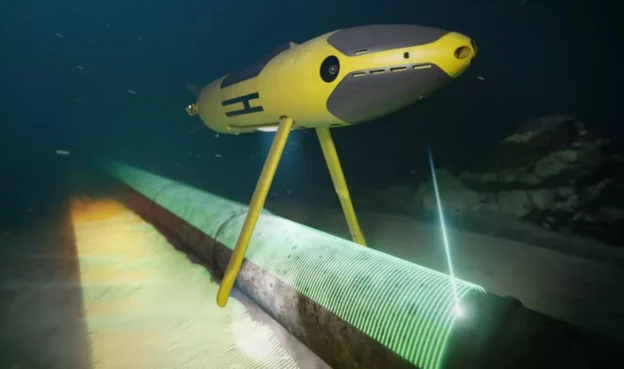Inspenet, August 16, 2023.
Aside from its role of safeguarding oil and gas pipelines at the bottom of the sea, the state-of-the-art unmanned underwater vehicle called the Argus also has the ability to explore oil or gas deposits and carry out salvage tasks.
The Central Design Office of Marina Rubín Engineering has developed a new unmanned underwater vehicle to protect underwater pipeline infrastructure. The unmanned autonomous maritime drone, known as Argus, will be presented for the first time at the Army International Military Technical Forum, which is being held in Kubinka from August 14 to 20.
Rubin’s press team explained that if it detects an unknown object near a potential oil or gas pipeline, the 5.6-meter-long drone will identify the object as a threat and then relay the information to the support ship .
Once the pipeline is installed, Argus will assume responsibility for monitoring its technical condition, company representatives said. In addition, they pointed out that the drone has the ability to detect possible oil or gas leaks , as well as identify displacements in the pipes.
Likewise, the drone can carry out functions of exploration of mineral resources on the seabed and carry out search and rescue missions. According to the manufacturer, the Argus, which weighs 3.2 tons, is powered by a lithium-ion battery and, when on the surface, can use radio devices with high-frequency links, satellite communication, and a Wi-Fi connection system.
Argus arises about the explosions of the Nord Stream
The development of the drone is especially relevant in light of the explosions that occurred last year that caused interruptions in the Nord Stream gas pipeline network.
These pipelines, built to transport gas across the Baltic Sea from Russia to Germany, were hit by explosions in September 2022.
The pipeline’s operating company, Nord Stream AG, reported that the damage suffered was unprecedented and that it was impossible to estimate the time needed to carry out repairs.
Denmark, Germany and Norway excluded Russia from their investigations into the incident, prompting Moscow to carry out its own inquiry.
Although the official results of the investigations have yet to be released, US journalist Seymour Hersh revealed on February 8 that US military divers planted explosives under Russian gas pipelines during the North Atlantic Treaty Organization (NATO) exercises Baltops in mid- of 2022.
According to the journalist, in September, the Norwegians activated the explosives, causing serious damage to the pipelines that link Russia with Germany through the bed of the Baltic. Hersh noted that Biden approved the sabotage act after more than nine months of secret discussions with his national security team.

